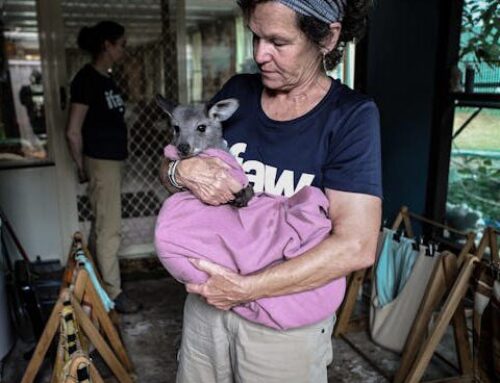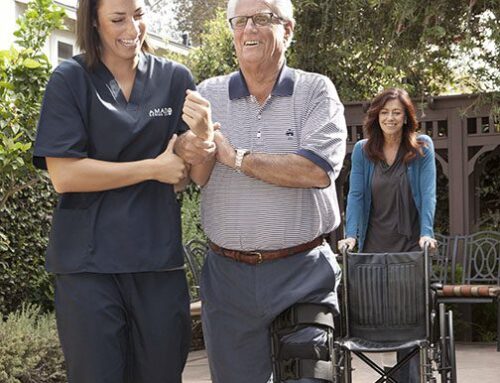World Alzheimer’s Month in September is an opportunity to raise awareness about this complex disease and to challenge the stigmas surrounding dementia. Launched in 2012, the awareness month spotlights the fact that 2 out of every 3 people globally believe there is little understanding of dementia in their countries.
More than 5 million Americans are living with Alzheimer’s or another dementia and it is the 6th leading cause of death in the US, according to the Alzheimer’s Association’s annual report. With the senior population growing quickly, Alzheimer’s and dementia cases will continue to increase as well, unless researchers can find a cure. This upcoming Monday, Sept. 21, is World Alzheimer’s Day, a call to action for all of us to educate ourselves on how to take preventative steps, identify symptoms and support loved ones who have been diagnosed. Read more below to learn how to join the fight to end Alzheimer’s disease.
Know the Warning Signs
Detecting Alzheimer’s disease early on will allow a senior to try different treatments that boost brain cells and improve symptoms like memory loss and reasoning skills. Although there is no cure for Alzheimer’s yet, researchers are getting close; recent studies have revealed more about the possible causes, and several clinical trials are under way using drugs that could not only prevent the disease, but reverse the symptoms. The following is a list of ten warning signs of Alzheimer’s from the Alzheimer’s Association:
- Memory loss that disrupts daily life
- Challenges in planning or solving problems
- Difficulty completing familiar tasks at home, at work, or at leisure
- Confusion with time or place
- Trouble understanding visual images and spatial relationships
- New problems with words in speaking or writing
- Misplacing things and losing the ability to retrace steps
- Decreased or poor judgement
- Withdrawal from work or social activities
- Changes in mood and personality
If you notice a loved one or yourself exhibiting one or more of these signs, make an appointment to see a doctor. An early diagnosis will give you and your loved ones more time to plan future care options and to seek out support services. You are invited to reach out to an Amada Senior Care advisor to learn more about the special training Amada caregivers receive to help manage the symptoms of Alzheimer’s and dementia patients. This training and support of an Amada caregiver can positively impact the senior patient’s quality of life and that of the family.
Raise Money for Care, Support, and Research
Alzheimer’s is a costly disease. Besides making a donation, there are several other ways to raise funds to further the research toward finding a cure. The Alzheimer’s Association sponsors both the Walk to End Alzheimer’s and The Longest Day. More than 600 communities across the US hold an annual Walk to End Alzheimer’s between now and November. Click here to find a walk near you. Or plan now to participate in The Longest Day, a team event held annually on the summer solstice (it falls on June 20th next year). Teams can choose an activity to participate in from sunrise to sunset, symbolizing the challenge of living with Alzheimer’s or being a caregiver. Many choose an activity that honors a loved one living with Alzheimer’s, like cooking, hiking, dancing, or playing cards. All funds raised by The Longest Day go to the Alzheimer’s Association to help fund research. Click here to learn more.
Become an Advocate
This month, you can “Go Purple” – the official color of the Alzheimer’s movement – by wearing purple clothes and gear, turning your Facebook picture purple, and sharing why and who you go purple for on social media with the hashtags #EndAlz and #IGoPurpleFor. Although June is Alzheimer’s and Brain Awareness Month, you can pledge to continuously be in the fight to end Alzheimer’s by advocating to spread awareness and influence national policy about the disease. Alzheimer’s is one of the most critical health issues our country is facing– one that needs further research funds and public policies in place. Visit alz.org/advocacy to learn more about how you can encourage elected officials to take steps to fight Alzheimer’s more aggressively.
Written by Taylor French and updated by Michelle Flores, Amada contributors. Photo by Tim Doerfler on Unsplash.



